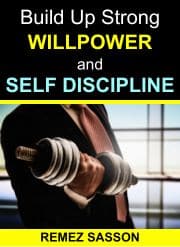
No matter how big our dreams, our time and resources are limited. Moving forward effectively is key.
Once you’ve committed to accomplishing something and putting in the effort, you’ll want to get the biggest return on your investment that you can, in the most efficient way.
Here are ten of my best tips for increasing your effectiveness and achieving your goals–whatever they may be.
10 Tips for Increasing Effectiveness
1.Be clear on your final outcome
This may sound obvious, but it’s surprisingly easy to skip this step.
Be as clear as you can about what it is that you are working to accomplish. Be sure you know exactly what success will look like and how you will know when you get there.
Being “more” of something is not a clear goal–no matter what you’re trying to be more of (more healthy, more patient, more relaxed, more productive . . .). Set a concrete measurable goal and you’ll know when you’ve arrived.
2.Create a timeline and set milestones along the way
Set a date for achieving your outcome. Schedule “milestones” for yourself.
In other words, identify the dates that you plan to achieve specific steps towards your goal. This will help you stay on track and recognize the need to make adjustments (if you are having difficulty achieving the milestones you have identified) as you go along.
3.Use deadlines to stay on track
Eliminate as much uncertainty and vagueness as you can. If you have a difficult step to take or are finding yourself procrastinating, set yourself a deadline.
You might decide to write three pages of your novel before 3pm, get to the gym three times before the weekend, or get your holiday card list organized by a certain date.
Deadlines can be particularly useful when you are struggling to make a decision and are feeling stuck. Set the deadline and commit to simply moving forward by making a decision before the deadline arrives.
4.Rein in your perfectionist
Nothing will get us off track faster or derail us entirely like our inner perfectionist.
Perfection is something we can rarely achieve and it’s often not necessary. The belief that we have to get something perfect before we can consider taking another step is a great way to never get anywhere.
Work at developing an awareness of when your desire for excellence is working for you and when it has surpassed any definition of usefulness.
There is a concept called the Pareto Principle you might want to consider. The Pareto Principle states that 20% of our efforts produce 80% of our results. The additional 80% of our efforts will only yield an additional 20% of results.
According to the Pareto Principle, the first thrust of our effort is the most productive use of our time.
Spending time on the back end working to make something “perfect” is often time intensive and nonproductive.
5.Create an environment for success
Surround yourself with what you need to stay on track, believe in yourself, and stay focused on your goal.
If you are trying to lose weight, don’t fill your kitchen with junk food.
Are you starting a new business? Carve out the office space you need and surround yourself with people who encourage and believe in what you are doing.
If you are cutting back on spending, don’t spend your free time at the mall. Instead make sure you have frequent reminders of why your hard work is going to pay off for you.
6.Get support
Perhaps the most important part of your environment is the people in it. Create a support system.
Find people who know about your goal and believe in you–a cheering section. Ideally you’ll want to include people who are working toward the same or a similar goal. This isn’t about creating competition but support.
You want to have someone in your corner who will remember why your goal is important to you on those dark days when you can’t. You want a support system who believes in your ability to succeed and will remind you of that when you need it the most.
7.Be accountable
I don’t know why, but many of us do better when we are accountable to someone else. Telling someone else that you have committed to do and knowing that they will check in on you and ask you how it went is a POWERFUL motivator.
8.Be flexible
Life happens and things don’t always go the way you planned. Sometimes what you learn from taking action is that you are going to have to try a different plan.
If something doesn’t go well, don’t view it as a failure, view it as data. Use what you learned to readjust, realign, and remap your course if necessary.
9.Find a mentor
There is no need to reinvent the wheel. Chances are, whatever you are trying to do, someone has succeeded at something similar or knows something you don’t.
Even Olympic athletes–the best in the world at what they do –have coaches. Finding someone who has the expertise to help you soar can often help you achieve what you want to more quickly and with more ease.
10.Celebrate
High-achievers can be tempted to skip this step.
It’s easy to get so used to having your nose to the grindstone that you’ve planned your next project before you’ve completed your current one.
DO NOT skip celebrating the milestones and goals you achieve.
The pause you take to congratulate yourself and let the good stuff sink in is part of what will energize you, motivate you, and grow your confidence for your future endeavors. Plus, standing on the mountain top and really seeing how far you’ve climbed, is an incredible, soul-feeding experience.
About the Author
Melissa McCreery, PhD, ACC, is a Psychologist, ICF Certified Life Coach, emotional eating expert, and the founder of www.toomuchonherplate.com/, a company dedicated to providing smart resources to busy women struggling with food, weight and overwhelm. Find out more and pick up her free audio series: “5 simple steps to move beyond overwhelm with food and life” at www.toomuchonherplate.com/
Copyright Melissa McCreery, Ph.D.


